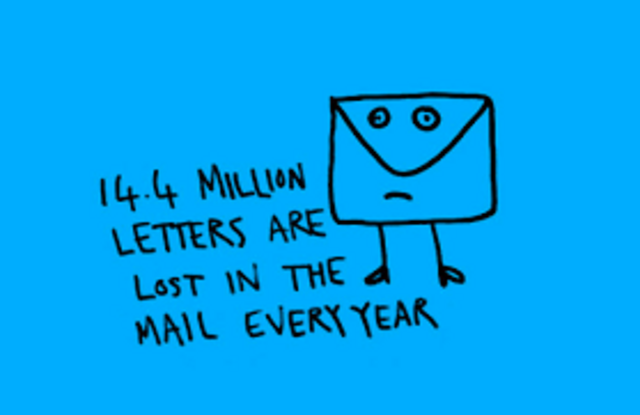There is an entity rarely named that we must trust to respect our privacy and fulfill our wishes when it comes to mail-in voting. An unavoidable contractor that, by forced proxy, would ultimately be the device casting many of our votes . . . the United States Postal Service. First-Class Mail service is an integral part of the mail-in vote process, two parts for some voters. USPS gets the ballot to the voter and, for citizens not offered/interested in a ballot drop off option, returns the ballot to the election office. When we cast our vote at a voting center, we know it’s been submitted. On time. When we cast our vote into a big blue box, we are left to wonder if it will end up better traveled than ourselves . . . and, uncounted.
About a week ago, “CBS This Morning” released the results of a study they’d completed on Vote By Mail. Mail-in ballot request and submission deadlines differ throughout the nation. This, and the 2016 uncounted mail-in vote numbers*, inspired CBS producers to craft an experiment in hopes they would be able to determine how long it takes an election ballot to travel from voter drop-off to election office. Mock ballots were produced, folded and placed in return envelopes to approximate the size and weight of a genuine ballot. There was but one difference between the mock ballots and the real thing – an official expedited service logo that appears on the real voting ballot return envelope was not on the test ballot envelopes. After establishing an “Election Office” address (P.O. Box,) study facilitators mailed 100 mock ballots from locations throughout the city of Philadelphia to their drop. A few days later, 100 more mock ballots were mailed to the P.O. box address from other locations in the city.
When checking the P.O. box one week after the first batch of ballots had been mailed, CBS producers found the box did not runneth over with returned ballots. Surprised and puzzled, they told the manager about the mail-in vote experiment. He then rummaged about and produced many more returned mock ballots.
“They had them somewhere else,” was the official reason offered by a postal worker. Mmmkay, that excuse would work for me where I’ve worked . . . about as well as lead floats. Moving on . . .
At least two pieces of mail in the P.O. box needed to be returned to the Postmaster so the missives could get to their actual addressees . . . missorted mail. If it works one way, it works the other. Can we hold fast to a belief that all people who receive a misdirected ballot would return it to the Post Office for proper delivery? Unopened? Even if they did, the ballot would take that much more time to arrive at an election office for recording, potentially missing the ballot submission deadline . . . rendered null, never counted.

See Also: Trump Flotilla on Oneida Lake
For mail-in voting, the Postal Service’s official recommendation is that voters mail their ballots at least one week prior to the vote submission deadline. One week after the first batch of 100 mock ballots was mailed to the CBS election office address from points around Philadelphia, 97 had been received. That means, 3% (I did that without a calculator) of the mock votes submitted via USPS – following USPS recommended time guidelines – would not be counted as they would have been delivered too late. Of the second batch of 100 mock ballots sent out, 79 ballots were received four days after their posting.
That was 100 ballots. Imagine the United States Postal Service handling 138,000,000 – the number of Americans who cast a vote in 2016. (No imagining just before bed, please . . . nightmares.) Expecting U.S. of American citizens to embrace a government-designated middleman thrust into their voting process that will not, and certainly will not be able to, provide assurance that our ballots will definitely be delivered to us in time to vote; and, definitely be returned to the election office in time to be counted – without any tampering either direction – is a flagrant flip off to US of American rights and individual value systems.
There are many good reasons to keep our vote casting an in-person event . . . fraud, of course, and other things like, national responsibility . . . humbled by privilege . . . the gathering of community. Forced to assign my right and responsibility to personally cast a private vote over to a faceless, unaccountable courier? That, alone, is enough for me to say NO to mandatory Vote By Mail.
*Of the 33 million ballots cast by mail in 2016, more than 73,000 American votes were nullified because the ballots were not received in time to be counted
